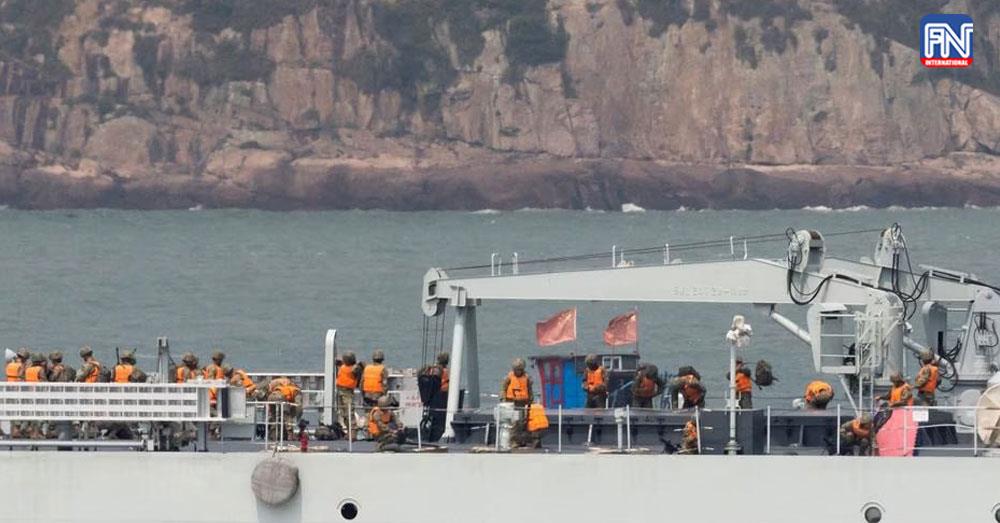TAIPEI, April 9 (Reuters) - The United States is monitoring China's drills around Taiwan closely and is "comfortable and confident" it has sufficient resources and capabilities regionally to ensure peace and stability, the de facto U.S. embassy in Taiwan said on Sunday.
China, which claims democratically governed Taiwan as its own territory, began three days of military exercises around the island on Saturday, the day after Taiwan President Tsai Ing-wen returned from the United States.
Most of Saturday's activities ended by sundown, a Taiwan security source told Reuters
While in Los Angeles, on what was officially billed a transit on her way back from Central America, Tsai met with the speaker of the U.S. House of Representatives, Kevin McCarthy, despite Beijing's warnings against it.
"We are monitoring Beijing's actions closely," said a spokesperson for the American Institute in Taiwan, which serves as the de facto embassy in the absence of formal diplomatic ties.
"As we have said, there is no reason for Beijing to turn this transit - which was consistent with longstanding U.S. practice and policy - into something it is not or use it as pretext to overreact," the spokesperson added.
U.S. channels of communication with China remain open and the United States has consistently urged restraint and no change to the status quo, the spokesperson said.
"We are comfortable and confident that we have in place sufficient resources and capabilities in the region to ensure peace and stability and to meet our national security commitments."
Washington severed diplomatic relations with Taipei in favour of Beijing in 1979, but is bound by law to provide the island with the means to defend itself.
China, which has never renounced the use of force to bring the island under its control, says Taiwan is the most important and sensitive issue in its relations with the United States, and the topic is a frequent source of Sino-U.S. tensions.
Beijing considers Tsai a separatist and has rebuffed her repeated calls for talks. Tsai says only Taiwan's people can decide their future.
